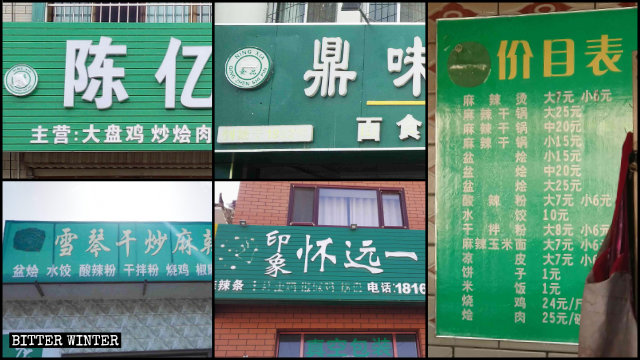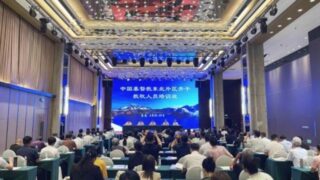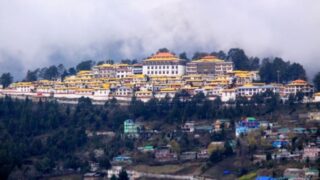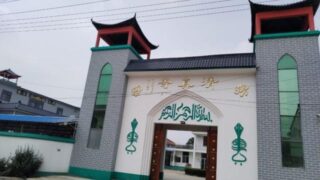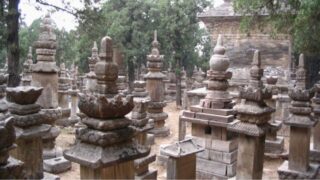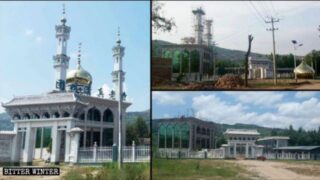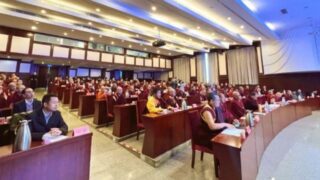When the president scolded local officials in Ningxia Hui Autonomous Region for not doing enough to curb Islamic culture, they rolled up their sleeves.
by Ma Xiagu
Numerous rectification campaigns have been implemented across China since the CCP launched its drive to “sinicize Islam” in 2018. Ningxia Hui Autonomous Region, home to China’s largest community of Hui Muslims, has become one of the major targets. In the past two years, numerous mosques in Ningxia have lost domes and minarets, and many other buildings were left without traditional Islamic structures and symbols.
After President Xi Jinping visited the region on June 6-8, a new round of rectifications was launched. According to a report on the CCP’s website, Ningxia authorities decided to follow the president’s call to “resolutely curb religious extremism and continuously rectify the problem of the three ‘zations’”—Arabization, Saudization, and generalization of halal.
The Nanguan Mosque in Yinchuan, the regional capital, is one of the largest mosques in Ningxia. Originally built in the late Ming dynasty (1368 – 1644) and restored in 1981, the mosque is treasured by Ningxia’s Hui people. On June 26, however, five green domes and minarets were removed from the mosque’s roof. According to a source, all remaining Islamic symbols and structures will be removed within three months.
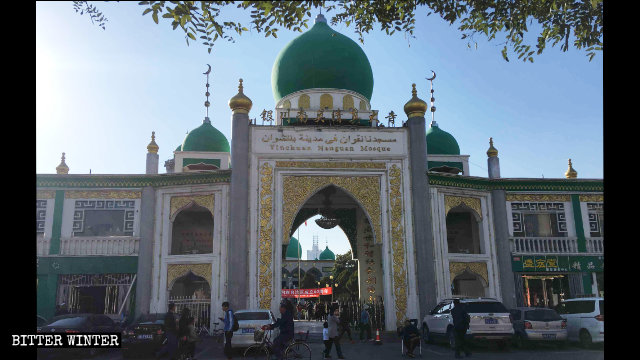

“This political campaign has struck a great blow to us, Hui people,” an elderly Muslim said helplessly outside the Nanguan Mosque. He added that the government had not issued any official document on the mosque rectification.


A local source revealed that despite their dissatisfaction, imams and other Muslims in charge of mosques are afraid to express their true feelings about the CCP’s Islam “sinicization” policy for fear of the government’s tyranny. “If they said something against the government, they would be arrested as political prisoners,” the source explained.
According to a government insider, Xi Jinping indicated during the visit that “Ningxia has made some achievements in religious reform, but it was not thorough enough.” Meaning, the rectification should be intensified.
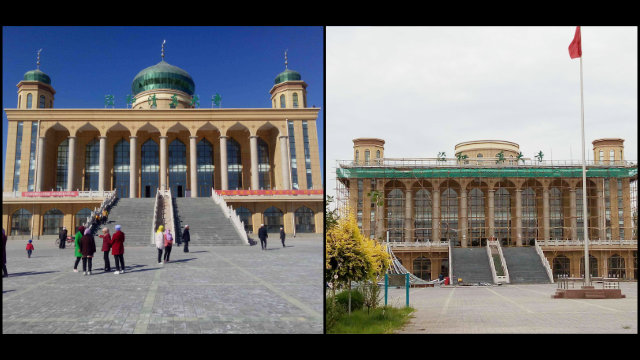

“After Xi Jinping left, the mosque rectification campaign began in our town and other urban areas,” said a Hui resident in Xingjing, a town administered by Yinchuan city’s Xixia district. “This campaign was ordered by the central government. An official told us that mosques should not be so grand and magnificent.” He added that even those Hui people who used to support the Communist Party have started changing their minds.




Yinchuan city’s Helan county is one of the areas inspected by Xi Jinping. For local Muslims, however, this is not a thing to be happy about. Some mosques in the county were already rectified in 2019. Apparently, not thoroughly enough: they suffered more crackdowns after the president’s visit. “Rectification must be repeated if the emperor says so,” a local Muslim commented sarcastically.


China Hui Ethnic Culture Park, a national 4A-level tourist attraction built in 2002 in Yinchuan’s Yongning county, was already “sinicized” last year. A new wave of rectifications started in late June. Cranes and other equipment were brought in, guarded by the police. A staff member in the park explained that the government ordered to change the buildings’ original style, which was intended to be “in line with Arabic countries.”


In July, the park’s signboard was removed, and its security increased, as more urban management and plainclothes police officers were brought in to supervise the rectification process. Tourists were barred from entering the park’s central square.
Businesses run by Hui people in Ningxia are also heavily suppressed. Large-scale campaigns to remove texts in Arabic and halal symbols from their signboards are being enforced since 2018. Now, even the Chinese characters for “halal” are banned and eliminated.
When the owner of an apparel store in Yinchuan applied for a business license, the Bureau of Industry and Commerce prohibited him from using the word “crescent” in the shop’s name. At the same time, an elderly businessman was banned from using a prophet’s name, which is also the name given to his son, on his business’s signboard.
As a local Muslim commented, “the CCP applied Xinjiang’s suppression methods to Ningxia,” referring to the ongoing persecution of Uyghur Muslims.
